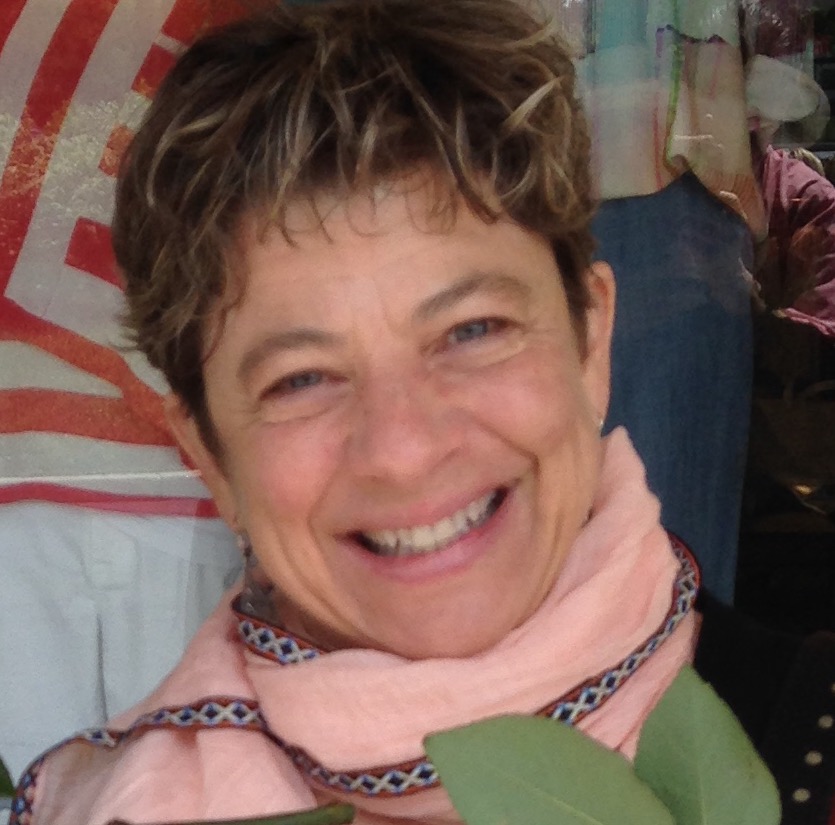
Reiki is a gentle, non-invasive treatment that is ideally suited to the needs of patients in post-acute, rehabilitation, long-term, or palliative care settings. Developed in Japan nearly 100 years ago and rooted in ancient Buddhist healing traditions, Reiki is a spiritually-based (although non-religious) modality with measurable health benefits.
During a Reiki session, which typically lasts an hour but can be as short as 5 to 15 minutes, the practitioner rests his or her hands lightly on or just above the client’s fully clothed body. The therapist’s hands serve as a conduit for the “Rei,” or universal life force (aka Spirit, Source, primordial energy), and the patient’s system draws in this subtle energy to rebalance and replenish its own “Ki” (aka vital energy, prana, chi).
To become a certified therapist, the practitioner studies the five founding principles of Reiki (see below) and learns a protocol of hand positions. Traditionally, each student also receives a special blessing or ‘attunement,’ which recalibrates the way his or her own system conducts energy.
The Five Founding Principles of Reiki
Just for today, no anger.
Just for today, no anxiety.
Rather: gratitude for all — just as it is.
Do your work with integrity.
Show kindness to all living things.
As do other therapies such as massage or breath work, Reiki activates the parasympathetic nervous system, which is the body’s “rest, restore and heal” response. Reiki triggers this response with extraordinary speed—typically within 2 to 3 minutes. The health benefits of settling into such deep relaxation can last for hours or days after a session has ended.
Many patients report feeling heat, buzzing, or pulsations from the practitioner’s hands. Some may also see colors or experience sudden flashes of insight. Virtually all patients report feeling profoundly at peace, rested, cared-for, and safe. For this reason, many long-term and palliative care programs include Reiki in their portfolio of Comfort Care services.
Much of Reiki’s popularity is due to its simplicity, affordability, and proven efficacy. It is low-tech, can be administered in any setting, and requires no special equipment or supplies. It also is comparatively inexpensive ($25 to $100 per hour). Most importantly, it is a proven therapy. The NANDA diagnostic codes include Reiki as an approved treatment for insomnia, fatigue, anxiety, stress overload, sleep deprivation, and acute or chronic pain.
Research on Reiki dates back to the late 1980s and early ‘90s. The Center for Reiki Research compiles and vets all research published in English, from around the world. The Center’s searchable archive currently includes 94 peer-reviewed studies which have been rated as Very Good or Excellent for their scientific rigor by a team of doctors, clinicians, scholars, and practitioners. These studies indicate that, among other health benefits, Reiki speeds post-operative healing, relieves pain, reduces stress, eases anxiety, lowers blood pressure, and improves the quality of life for patients with cancer and patients at the end of life.
Harold Bob, M.D., is the Regional Medical Director for both Fivestar Physician Services and Communicare Healthcare in Baltimore, MD. He says: “The research indicates that Reiki is beneficial for many patients, with no significant side effects. It appears to be especially comforting to those who are terminal.”
Bob urges medical directors, long-term care administrators, and caregivers to “consider an alternative path at end of life. Reiki is a method of focusing on how well a patient lives his or her last moments.”
Early studies of Reiki tended to be small-scale, but the size and scope of research is expanding. Scientists recently conducted a study of more than 1,200 documented Reiki sessions. Plans also are underway to replicate a pilot study of post-surgical Reiki on a national scale.
Major research centers are recognizing the role that Reiki plays in the field of complementary medicine. The National Cancer Institute has awarded a grant to Leila Kozak, Ph.D., (who was named a Clinical Champion in Patient-Centered Care by the Veterans Administration) to develop online teaching modules for palliative care providers on the use of evidence-based complimentary therapies, including Reiki.
Nearly 80 U.S. hospitals now offer Reiki, including Dana Farber (Harvard), Columbia Presbyterian, and Montefiore Medical Center. At Montefiore, Sheldon Feldman, M.D., the Chief of Breast Surgery and head of Breast Cancer Services, gives his patients the option to have a Certified Medical Reiki Master before, during, and/or after surgery. He reports that mastectomy patients who opt for Reiki have less post-traumatic shock and recover more smoothly from surgery.
It’s worth asking if a similar option may help those long-term care residents, especially those who are terminally ill.
Ann M. Thompson, CMRM, is a certified medical Reiki master. To find a practitioner near you, visit The International Center for Reiki Training, Certified Medical Reiki Masters or International Association of Reiki Professionals.





